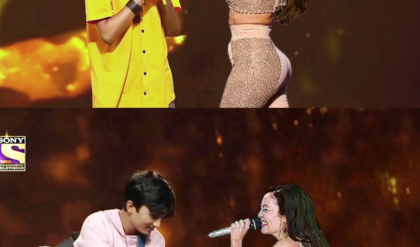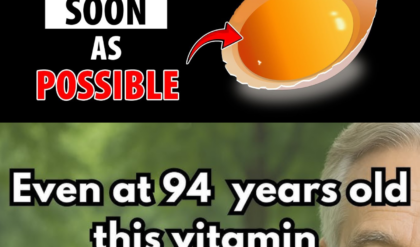Vivansh World Record: 4-Month-Old Baby Makes History, Everyone Shocked!
In a world where records are set by seasoned athletes, technological prodigies, and lifelong achievers, a tiny miracle has stunned the globe. At just four months old, baby Vivansh Rajendra Nekar has done something no one ever thought possible. In his first few months of life, Vivansh has managed to break a world record, leaving experts, doctors, and millions of people around the world speechless.
Vivansh’s feat? He has become the youngest baby in history to identify over 470 flashcards across various categories, a display of memory, cognitive skill, and attention span that has never been witnessed before at such an early age. It’s not just a record—it’s a revolution in how we perceive infant potential.
The Beginning of Something Extraordinary
Vivansh was born like any other child—healthy, curious, and loved. His parents, Rajendra and Meenal Nekar, were thrilled to welcome their firstborn into the world. In the first few weeks, they noticed something unusual. Vivansh responded to colors and sounds with unusual intensity. While most infants showed fleeting glances or reflexive reactions, Vivansh tracked movements, gazed deeply at objects, and responded to verbal cues with clear awareness.
Intrigued, his parents decided to gently introduce him to visual learning stimuli. They began with simple flashcards—colors, shapes, fruits. To their amazement, Vivansh began showing signs of recognition far earlier than expected. What started as a curiosity soon evolved into a daily practice.
Building the Record
Over a span of several weeks, Vivansh’s parents created a comprehensive visual-learning environment. The walls of their home were filled with laminated flashcards of animals, birds, vegetables, vehicles, body parts, emotions, and numbers. They limited the sessions to 5–10 minutes a few times a day, ensuring they never pressured the child.
Rather than repetition alone, they used variety and tone modulation to retain Vivansh’s interest. His ability to follow, process, and respond to these cards gradually expanded. From five cards to ten. From ten to fifty. And then, remarkably, to over four hundred seventy.
Using eye movements, baby gestures, and subtle sounds, Vivansh began consistently identifying the flashcards. It was evident that this wasn’t coincidental. The baby was developing a memory map of images, associating visual information with verbal cues far ahead of the expected developmental timeline.
Why This Is Groundbreaking
Cognitive experts often state that the brain is most plastic and receptive in the first three years of life. But most infants at four months are only beginning to lift their heads, respond to faces, and show interest in toys. Recognition of hundreds of flashcards is virtually unheard of at this stage.
Vivansh’s case defies conventional developmental norms and opens the door to new questions. Can infants absorb more than we imagine? Are we underestimating the learning capacity of newborns? How much of early intelligence is nature versus nurture?
Vivansh’s achievement doesn’t just make him a record-holder—it positions him as a symbol of untapped human potential.
Behind the Baby: The Role of His Parents
A baby cannot accomplish such a feat without support, and Vivansh’s parents deserve immense credit. Their approach to parenting was patient, loving, and innovative. Instead of screen time, they introduced real-life stimuli. Instead of forcing results, they allowed Vivansh to guide the pace. They treated their baby not just as someone to be cared for, but as someone capable of communication, comprehension, and expression.
They emphasized consistency over intensity. Each session was treated as playtime. They danced with him, sang rhymes, held flashcards with joy—not stress. This positive emotional environment contributed significantly to his receptivity.
Moreover, they ensured proper rest, nutrition, and emotional bonding. The holistic care they provided laid the perfect foundation for such exceptional learning.
How the Record Was Confirmed
To validate the milestone, a comprehensive evaluation was conducted. A neutral team observed Vivansh during multiple flashcard sessions over several days. Each card shown to him was from a randomly shuffled deck, and included items from seven categories: animals, vegetables, birds, flowers, shapes, colors, and everyday objects.
Observers recorded his eye movements, head tilts, and verbal cues that indicated accurate recognition. The consistency in his reactions, combined with controlled testing, led the committee to confirm the count: 470 unique cards recognized—a new world record for a baby his age.
Public Reaction: Shock, Awe, and Celebration
News of the record spread rapidly. What started as a home experiment soon caught national and global media attention. Social media flooded with reactions—emojis, congratulatory messages, and heartwarming comments from parents, educators, and curious onlookers.
Videos of Vivansh during the sessions went viral. People were amazed not only by the number of cards but also by his focus and calmness. “How is this possible?” became the most repeated comment. From baby forums to neurological conferences, everyone was talking about Vivansh.
Parents worldwide began asking themselves: are we underestimating our babies? Should we be interacting more deeply with our infants? Can we introduce learning in a joyful and safe way much earlier?
What the Experts Say
While some experts urge caution, the majority agree that early exposure to language and visuals is highly beneficial. Babies are naturally drawn to faces, colors, and movement. Structured interaction using high-contrast images and vocal stimulation helps develop brain connections.
However, they stress that no pressure should be put on infants. Not every child is the same. What Vivansh has achieved is rare—and remarkable—but it doesn’t mean all babies should be taught flashcards in their cribs.
Instead, experts encourage parents to take inspiration from the emotional environment Vivansh’s parents created: consistent interaction, warmth, freedom to explore, and respect for the baby’s pace. The goal is not records, but meaningful connection.
Will Vivansh Remember This?
Some may argue: will Vivansh even remember any of this? The answer is: maybe not consciously. But memory isn’t always about recollection—it’s about development. The brain builds its framework early. The benefits of enriched stimulation at four months may not be visible as distinct memories, but they set the stage for learning habits, curiosity, and mental agility later in life.
Vivansh’s ability to recognize images is likely a reflection of strong neural connections. As he grows, his language, emotional intelligence, and problem-solving skills may benefit from this head start.
The Message to the World
At the heart of this story is a gentle but powerful message: believe in the brilliance of babies.
They are not passive observers. They are born ready to learn. Vivansh has reminded the world that the first months of life are not just about feeding and sleeping—they can also be about exploration, bonding, and discovery.
Let’s not see him as an exception. Let’s see him as a spark that ignites deeper understanding of early learning. Not every child will set a world record—but every child can benefit from love, attention, and the freedom to grow.
Looking Ahead: What’s Next for Baby Vivansh?
For now, Vivansh will go back to being what he is—a baby. His parents have made it clear they’re not interested in turning his talent into a performance. They plan to let him grow naturally, play, laugh, and explore the world around him without pressure.
The record will remain a shining chapter in his life story, but the true legacy is the joy it brought to people everywhere.
Vivansh’s journey is just beginning. Whether he becomes a scientist, an artist, an athlete, or chooses a life away from the spotlight, one thing is certain—he’s already shown the world that even the smallest among us can leave a giant impact.
Final Thoughts
In an era of distraction and digital overload, baby Vivansh’s story cuts through the noise with a simple truth: the human mind is full of wonder—even before we can speak or walk. He is not just a record-holder. He is a symbol of hope, of parenting done with intention, and of a world that still has the capacity to be amazed.
Let us celebrate him not just for what he did, but for what he represents—the infinite, untapped possibilities that lie within each new life.
News
Ram Kapoor’s Wife Gautami Lashed Out Ekta Kapoor For Dig At Her Husband’s Weight Loss
Gautami Kapoor Shuts Down Ekta Kapoor’s Remarks on Ram Kapoor’s Weight Loss: A Bold Statement on Health, Respect, and Love In the glitzy world of Indian television, where image often overshadows essence, one power couple just reminded the world…
Terrible News: Popular TV Actor Aasif Sheikh Involved in an Accident
Terrible News: Popular TV Actor Aasif Sheikh Involved in an Accident In a recent and alarming incident, renowned television actor Aasif Sheikh, best known for his role as Vibhuti Narayan Mishra in the popular sitcom Bhabiji Ghar Par Hain,…
Mohammad Faiz and Neha Kakkar – Superstar Singer Season 2
Mohammad Faiz and Neha Kakkar – A Magical Journey on Superstar Singer Season 2 In the realm of reality television, few shows manage to capture hearts across generations the way Superstar Singer has. With a focus on young singing…
Top 6 Nutrients to Stop Leg Weakness in Seniors – Fast!
Top 6 Nutrients to Stop Leg Weakness in Seniors – Fast! As we age, maintaining strength and mobility becomes increasingly essential to living independently and enjoying a high quality of life. One common complaint among seniors is leg weakness,…
Top 10 Foods to Prevent Leg Cramps in Seniors — Even at Night!
Top 10 Foods to Prevent Leg Cramps in Seniors — Even at Night! Leg cramps are painful, involuntary muscle contractions that can strike without warning—often at night, disrupting sleep and affecting quality of life. Seniors are especially vulnerable…
Saif Ali Khan was caught by the police, leaving Kareena Kapoor deeply shocked.
Saif Ali Khan Caught by Police, Leaving Kareena Kapoor Deeply Shocked Mumbai, India – In a development that has left Bollywood stunned and fans in disbelief, actor Saif Ali Khan was reportedly detained by Mumbai Police late last night…
End of content
No more pages to load











